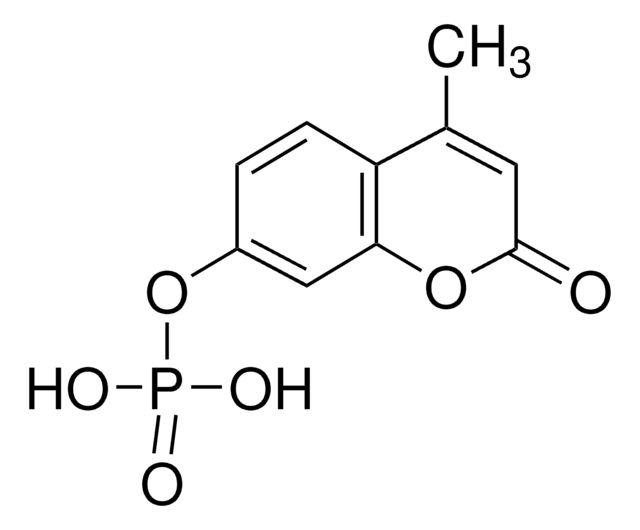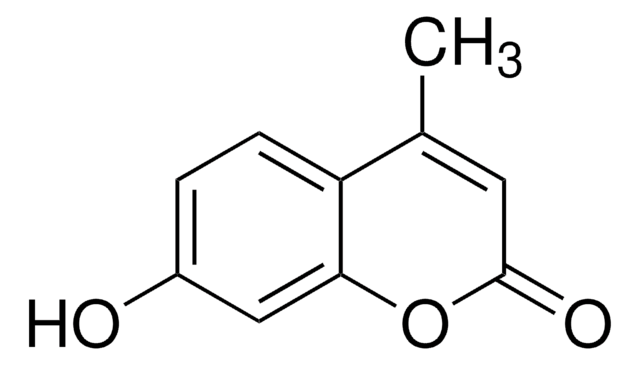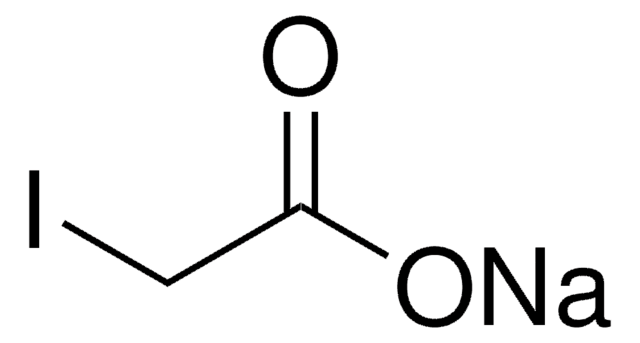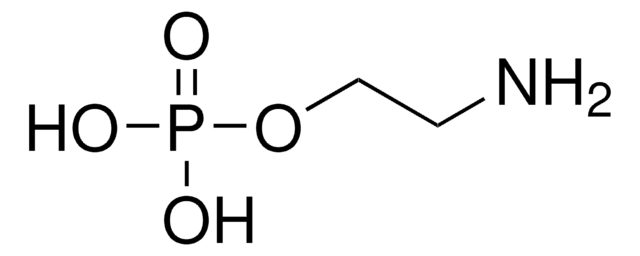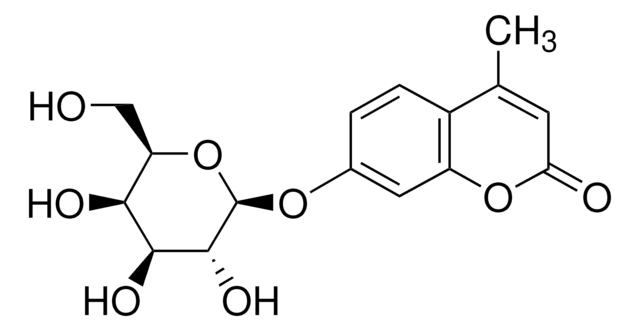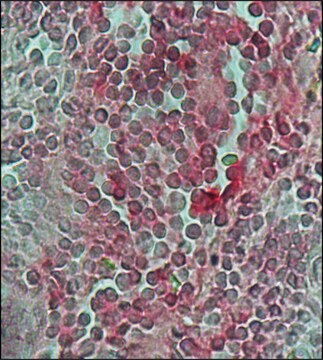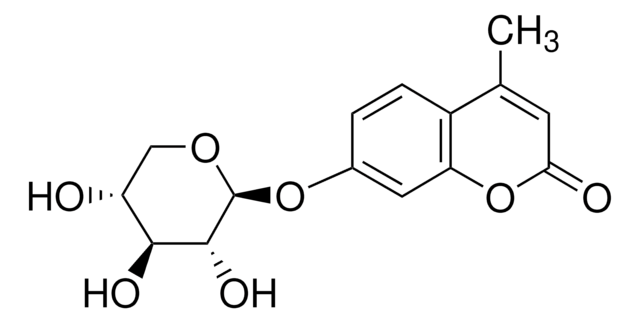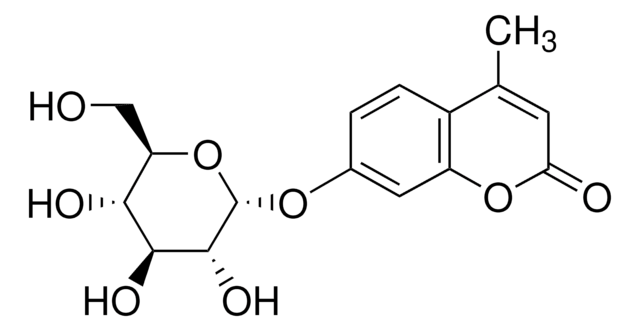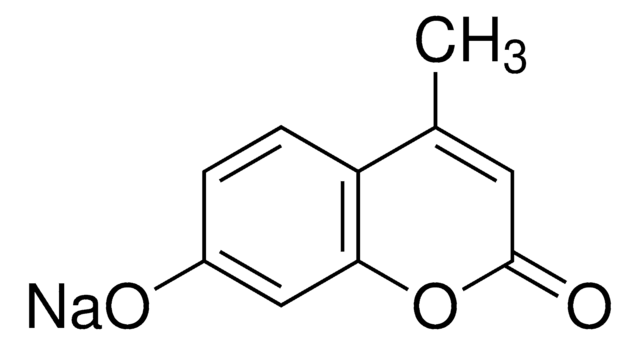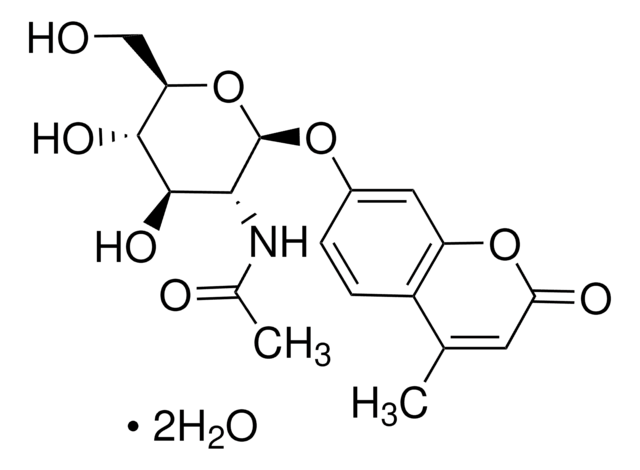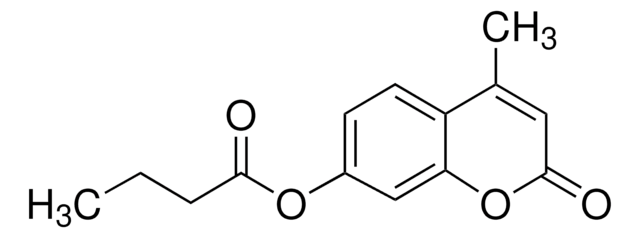M8168
4-Methylumbelliferyl phosphate disodium salt
phosphatase substrate, ≥98% (TLC), powder
Synonym(s):
4-MUP, Disodium 4-methylumbelliferyl phosphate
About This Item
Recommended Products
product name
4-Methylumbelliferyl phosphate disodium salt, phosphatase substrate
description
phosphatase substrate
Quality Level
Assay
≥98% (TLC)
form
powder
solubility
water: 50 mg/mL, clear, colorless
fluorescence
λex 319 nm; λem 384 nm (pH 9.0)
λex 360 nm; λem 449 nm (Reaction product)
storage temp.
−20°C
SMILES string
[Na+].[Na+].CC1=CC(=O)Oc2cc(OP([O-])([O-])=O)ccc12
InChI
1S/C10H9O6P.2Na/c1-6-4-10(11)15-9-5-7(2-3-8(6)9)16-17(12,13)14;;/h2-5H,1H3,(H2,12,13,14);;/q;2*+1/p-2
InChI key
WUUDJQVNZPEPKN-UHFFFAOYSA-L
Looking for similar products? Visit Product Comparison Guide
Related Categories
Substrates
Storage Class Code
11 - Combustible Solids
WGK
WGK 3
Flash Point(F)
Not applicable
Flash Point(C)
Not applicable
Personal Protective Equipment
Certificates of Analysis (COA)
Search for Certificates of Analysis (COA) by entering the products Lot/Batch Number. Lot and Batch Numbers can be found on a product’s label following the words ‘Lot’ or ‘Batch’.
Already Own This Product?
Find documentation for the products that you have recently purchased in the Document Library.
Customers Also Viewed
Our team of scientists has experience in all areas of research including Life Science, Material Science, Chemical Synthesis, Chromatography, Analytical and many others.
Contact Technical Service